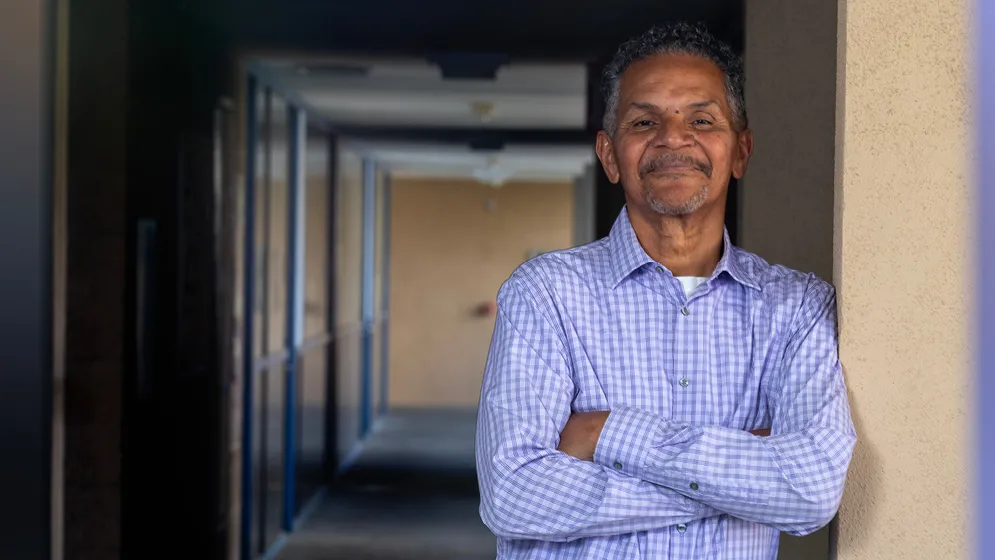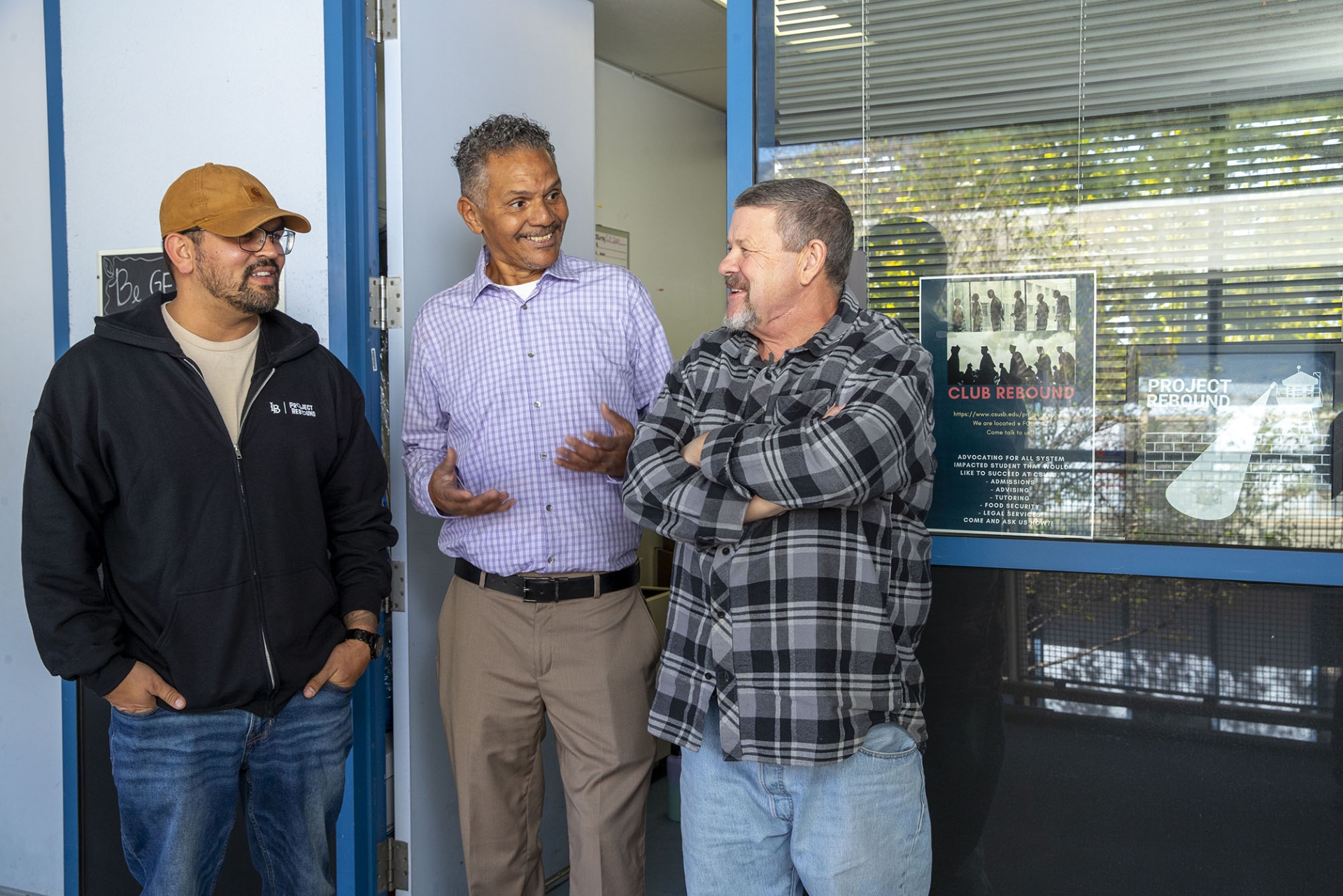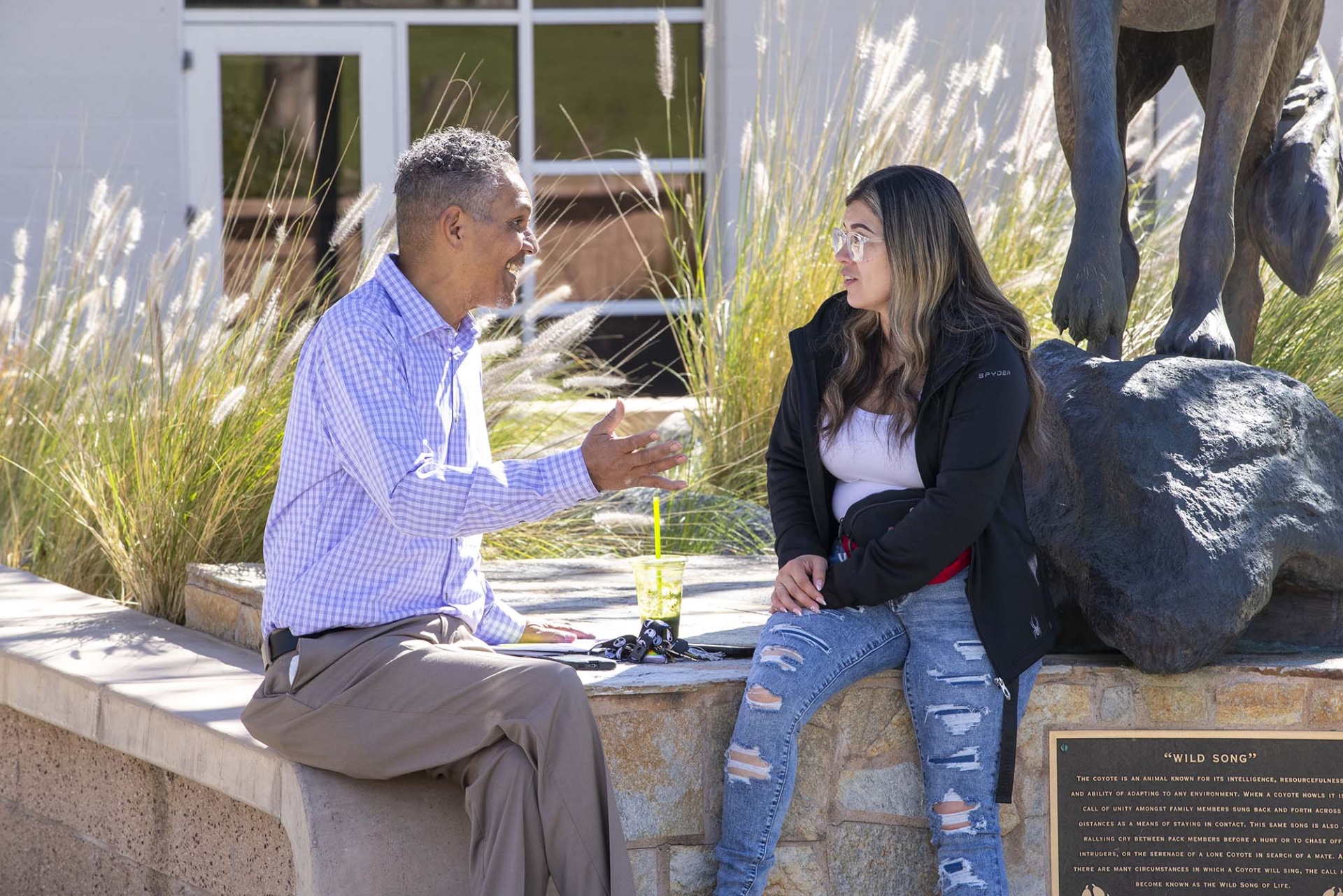Alan Llavore | Office of Strategic Communication | (909) 537-5007 | allavore@csusb.edu


In the heart of Desert Hot Springs, lives are being transformed.
Leading the transformation is Cal State San Bernardino alumnus Walker Beverly, whose journey from incarceration to empowerment inspired the creation of Advancing Steps, a nonprofit organization dedicated to helping formerly incarcerated individuals reintegrate into society.
Beverly’s path to founding Advancing Steps was far from conventional. Born in Los Angeles, he faced numerous challenges throughout childhood and his youth and struggled to find his footing. In 1992, he earned a bachelor’s degree in economics from Langston University, a historically Black university in Oklahoma, before his life took a different turn, leading to incarceration.
But Beverly has not allowed incarceration to define him; it became a steppingstone toward a greater purpose. His desire to become a public speaker and guide youth away from a life of trouble led him to Cal State San Bernardino, where he subsequently was awarded a master of arts in communication studies in 2018.
"I wanted to speak to youth about being in trouble and how to avoid it," Beverly shared, reflecting on his original motivation. "I wanted to re-steer that behavior through conversation and motivational speaking."
He became a graduate teaching assistant and taught public speaking for several quarters. It was during this time that his focus shifted toward mass incarceration and recidivism. He also found support through CSUSB’s Project Rebound program, which assists formerly incarcerated individuals succeed in college.

“I was inspired by Everette Highbaugh, a classmate from Langston University who's been doing this work in the Bay Area for 25 years. I always admired the work he did,” Beverly said.
“During my second year of school, I really started to focus on formally incarcerated people and having discussions with my master’s thesis Committee Chair Ahlam Muhtaseb, professor of media studies,” he said.
Beverly’s research resulted in his thesis project, "I Just Got Out. I Need a Place to Live: A Business Plan for Transitional Housing." This project reveals the challenges faced by individuals reentering society after incarceration and has been downloaded more than 6,400 times.
“The appendix is actually a business plan to start a transitional housing as a nonprofit,” Beverly said. “I've gotten calls from New York, Illinois, Georgia. I have a friend in Connecticut who read it and called, ‘Hey man, come out here. Help me try to open something up out here.’”
In Desert Hot Springs, Beverly applied his business plan to create Advancing Steps, which gained nonprofit status in November 2019. But the COVID-19 pandemic posed a significant hurdle, delaying the organization's progress. During that time, Beverly focused on building a network of partnerships with other organizations and government agencies, he said. The nonprofit is still working toward creating transitional housing.
"We have a grant of over $750,000 to do reentry work," Beverly explained. "Our budget is around $300,000 a year right now. But we hope to raise that and be a million-dollar organization in the next couple of years."
The organization employs a dedicated team, including a case manager, program manager, and interns from local institutions, including CSUSB. Beverly’s wife, Quana Hall-Beverly, serves as Advancing Step’s HR manager and financial manager and, according to Beverly, was instrumental in establishing the nonprofit.
Their mission is to provide comprehensive support, ranging from cognitive behavioral therapy to workforce development. Their primary focus is on upskilling, emphasizing that higher education or trade skills are the best paths to achieving a living wage. Every client is expected to enroll in an educational or vocational program within the first six months, Beverly said.

“Our intake process is geared around figuring out clients’ needs,” he said. “We let them know we’re here to help and encourage them to think everything is possible. We tell them, ‘Now you got a new life. Don't worry about the past. The past is gone. There's nothing you can do about the past. All you can do is think about the today and tomorrow.’
“We do an assessment and then map out an individualized plan for them. If someone’s been incarcerated for 20 years, they don't even know how to use technology, how to use a phone.
“It's a tough situation, but we do our best for those that need to get employed as soon as possible,” Beverly said. “We help fill out 10 applications a day if we need to. Clients go through our workforce development program where we help them build a resume, we teach them how to interview, and then we show them ways to do job searches.”
Despite the challenges, Advancing Steps has made significant strides in a short period. Its full-service resource center has already made a positive impact on the lives of 28 formerly incarcerated individuals, many of whom have enrolled in educational programs and secured employment opportunities. The program has enrolled four people into College of the Desert; two of them plan on transferring to CSUSB through Project Rebound, the same program Beverly sought assistance from as a graduate student.
“With the right support and the right opportunities, individuals can rebuild their lives and make a positive impact on their communities,” Beverly said.